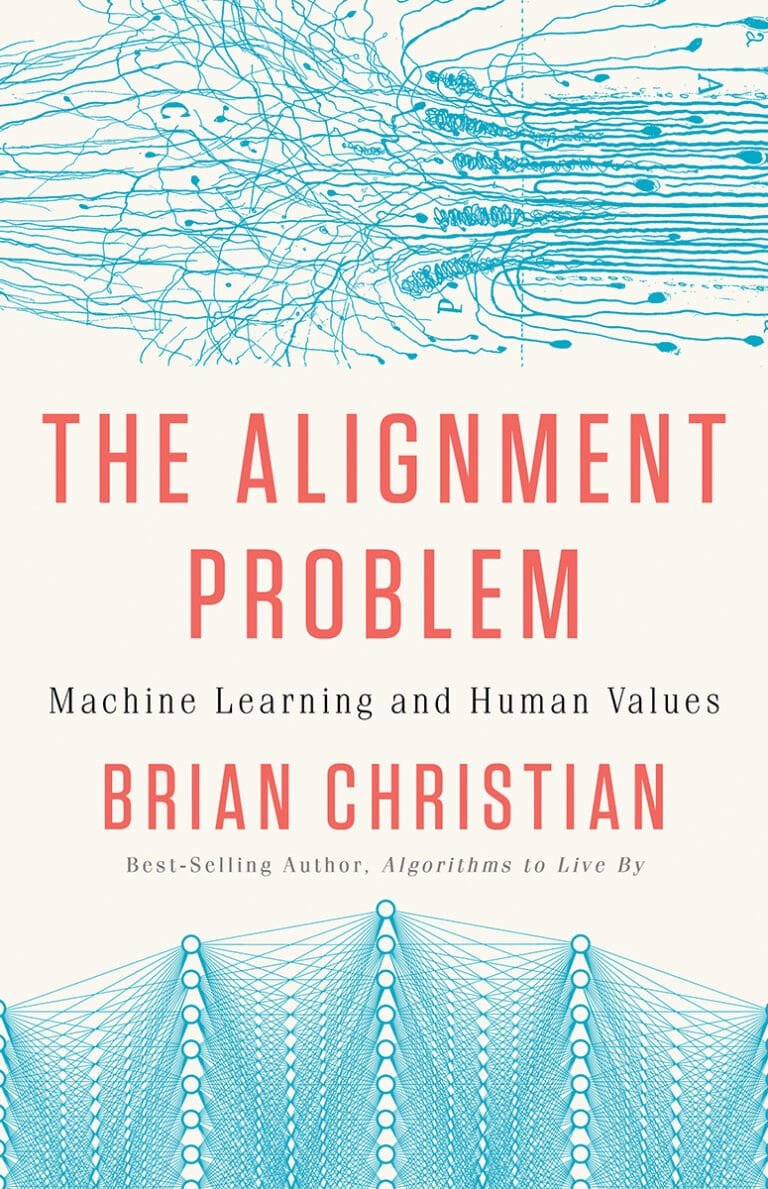How AI is Revolutionising Travel Planning: Best Tools for 2024
AI in Travel
Artificial intelligence (AI) has emerged as a transformative force in various industries, and the travel sector is no exception. Over recent years, AI technologies have witnessed rapid advancements, making them integral to the evolution of travel planning. This new wave of innovation is reshaping how travelers plan their journeys, simple inquiries, and complex itineraries alike.
One of the most significant applications of AI in travel is through smart algorithms and machine learning, which analyze massive datasets to provide personalized recommendations. These AI-driven solutions save time and effort for travelers by curating experiences that align with their preferences and interests. For instance, a user can receive tailored suggestions for destinations, accommodations, and activities based on previous travel history, preferences, and even real-time feedback. The convenience offered by these systems ensures that travelers can make informed decisions swiftly.
Moreover, AI helps enhance the overall travel experience by providing systems that streamline booking processes. Chatbots and virtual assistants, powered by AI, now serve as 24/7 customer service agents, assisting travelers with inquiries ranging from flight bookings to itinerary changes. The value these tools bring is not just in efficiency, but also in improving customer satisfaction by offering immediate responses and valuable insights.
The travel industry is also leveraging AI for better data analysis, allowing businesses to anticipate market trends, optimize pricing strategies, and tailor marketing campaigns effectively. This multidimensional approach benefits not only travelers who receive customized offerings but also travel companies that can enhance their services and offerings through refined insights. As we explore the best AI-driven tools for 2024, it is clear that embracing artificial intelligence is becoming critical for anyone looking to navigate the intricacies of travel planning.
The Benefits of AI in Travel Planning
AI technology is rapidly transforming the travel planning landscape, presenting significant advantages that streamline the entire process. One of the most noteworthy benefits is the considerable time savings that AI tools offer to travelers. Traditional travel planning often requires extensive research, comparing options, and making various bookings, which can be tedious and time-consuming. However, with AI-powered applications, users can input their preferences and receive travel options almost instantaneously, eliminating hours of manual searching.
Another critical benefit is the reduction of stress associated with travel planning. Anxiety can arise from uncertainty over choices or complications that may arise during the planning phase. AI alleviates this concern by providing intelligent recommendations based on user preferences, historical data, and current travel trends. For example, an AI travel assistant can suggest ideal destinations, accommodations, and activities that align with the traveler’s interests, thereby empowering users to make informed decisions effortlessly.
Personalized recommendations are a cornerstone of AI’s effectiveness in travel planning. By analyzing customer preferences and behaviors, AI tools curate tailored itineraries that resonate with individual tastes. This personalization enhances the overall travel experience, ensuring that each journey is unique to the traveler. For instance, platforms like Google Travel utilize AI to offer customized suggestions, ranging from attractions and restaurants to cultural events, all based on previous interactions and preferences.
Moreover, AI tools can adapt to real-time changes, such as flight delays or cancellations, orchestrating immediate adjustments to itineraries seamlessly. This level of responsiveness further exemplifies how AI stands out as a transformative force in the travel sector. The integration of AI into travel planning not only optimizes the process but also enriches the experience, making travel more accessible and enjoyable for everyone.
Smart Itinerary Generators
In recent years, smart itinerary generators have emerged as a formidable ally in the realm of travel planning, leveraging artificial intelligence to provide tailored travel experiences. These advanced tools gather user input, preferences, and a wealth of available data—such as weather conditions, flight availability, and local attractions—to create optimized travel itineraries. By analyzing these factors, smart itinerary generators reduce the often time-consuming and overwhelming task of planning a trip into a streamlined process.
One of the standout features of these tools is their ability to personalize itineraries based on individual traveler needs. For instance, families may prioritize kid-friendly activities, while solo travelers might seek out adventure and nightlife options. AI-driven platforms like TripHobo and Inspirock offer intuitive interfaces that allow users to customize their travel plans by selecting specific interests, budget constraints, and time limitations. As a result, they produce itineraries that align closely with the traveler’s preferences.
Popular smart itinerary generators for 2024 include platforms such as Kayak Trip Huddle and Google Travel. Kayak Trip Huddle, for example, enables groups of travelers to collaborate on trip planning by voting on preferred activities and destinations, which enhances both engagement and satisfaction. Similarly, Google Travel’s ability to compile details from past searches and user preferences aids in generating relevant itineraries that can adapt to real-time changes, such as unexpected flight delays.
Furthermore, these itinerary tools not only excel in user-friendliness but also significantly improve travel organization. By automatically providing suggested routes, estimated travel times, and links to book accommodations and attractions, smart itinerary generators minimize the stress associated with travel logistics. As AI technology continues to evolve, the effectiveness and accessibility of these tools are likely to enhance the overall travel experience, making them indispensable resources for modern travelers in 2024.
AI-Powered Customer Service in Travel
The travel industry has experienced significant transformation thanks to advancements in artificial intelligence, particularly in the realm of customer service. AI-powered chatbots and virtual assistants have emerged as invaluable tools for enhancing customer interactions, providing immediate responses to inquiries, and streamlining the booking process. These intelligent systems can readily handle a multitude of customer requests, ranging from simple FAQs to more complex itinerary adjustments, thus alleviating the pressure on human agents and improving efficiency.
One of the primary benefits of AI in travel customer service is the capability for instant communication. Travelers can now facilitate their bookings or obtain assistance at any time, without needing to wait for traditional customer service hours. This round-the-clock availability not only enhances user satisfaction but also builds customer loyalty, as clients appreciate the convenience of being able to obtain assistance on-demand. By utilizing natural language processing, AI chatbots can interpret and respond to inquiries in a manner that feels both intuitive and personable.
Moreover, these AI tools provide real-time support during trips, ensuring travelers have a seamless experience from start to finish. For instance, in the event of flight cancellations or delays, AI-powered assistants can proactively inform travelers about alternative arrangements and rebook their tickets. This capability significantly reduces travel-related stress, as clients are kept informed and supported throughout the process. Additionally, AI can analyze vast amounts of data to offer personalized suggestions for activities, dining, or accommodations based on individual preferences, further enhancing the travel experience.
Overall, the integration of AI-driven customer service solutions in the travel sector is reshaping how travelers engage with brands. Improved response times, proactive support, and personalized recommendations are establishing a new standard of service that meets the evolving expectations of the modern traveler. As we approach 2024, the trend of leveraging AI in customer service is set to become even more pronounced, solidifying its role in the travel industry.
AI for Risk Mitigation and Safety
In the realm of travel planning, ensuring the safety and security of travelers is of paramount importance. Artificial Intelligence (AI) plays an instrumental role in risk mitigation by enabling travelers to anticipate and navigate potential hazards. One of the key mechanisms through which AI helps achieve this is through predictive analytics. By analyzing vast amounts of data, AI algorithms can identify emerging threats—such as political instability, natural disasters, or health advisories—far in advance. This foresight allows travelers to make informed decisions about their itineraries, thereby minimizing the likelihood of encountering dangerous situations.
Additionally, AI-driven safety alert systems provide real-time updates about any risks in a traveler’s vicinity. Many travel apps and services now utilize AI to monitor incidents such as extreme weather conditions, civil unrest, or even specific security threats. When an alert is issued, travelers can receive immediate notifications, allowing them to change their plans or take necessary safety precautions. This proactive approach greatly enhances traveler safety and provides peace of mind during their trips.
Moreover, AI tools can facilitate access to real-time information relevant to traveler safety. By curating data from government agencies, health organizations, and local sources, these tools ensure that users stay informed about critical safety updates. This not only empowers travelers but also allows them to devise contingency plans tailored to specific risks they may encounter at their desired destinations.
Ultimately, the integration of AI in travel planning significantly enhances risk mitigation and safety, ensuring that travelers can focus on enjoying their experiences rather than worrying about potential dangers. With advanced analytics, timely alerts, and comprehensive information at their fingertips, travelers can embark on their journeys with confidence.
Popular AI Tools for Travel in 2024
As we move into 2024, the integration of artificial intelligence into travel planning has given rise to a variety of innovative tools designed to enhance the traveler experience. These AI-powered solutions are not only making travel planning more efficient but also providing personalized recommendations tailored to individual preferences. Below is a selection of some of the most popular AI tools for travel in 2024.
One standout tool is Skyscanner, which employs advanced AI algorithms to help users discover the best flight deals based on their travel habits and preferences. Features such as Price Alerts and the “Everywhere” search option empower users to find optimal travel agents seamlessly. Skyscanner’s ability to analyze vast amounts of data in real-time ensures users are always informed about price fluctuations.
Another notable mention is TripIt, an AI-driven travel planner that organizes travel details into a master itinerary. After users forward their confirmation emails to the service, TripIt automatically gathers details such as flight itineraries, hotel reservations, and rental car bookings. This consolidated approach offers effortless travel organization, which is invaluable for both leisure and business travelers.
Hopper, an AI-fueled app, is widely recognized for its predictive analytics technology that helps travelers understand when to book flights and hotels. By analyzing historical data and current trends, Hopper provides insights on the best times to purchase tickets to save money. Its user-friendly interface and recommendations have made it a preferred choice among savvy travelers.
Lastly, Google Travel leverages AI capabilities to offer personalized trip suggestions based on users’ past travel experiences and interests. The tool aggregates flight options, accommodation recommendations, and local attractions, thereby streamlining the travel planning process. Its intuitive design ensures that users can easily navigate through various travel options.
These tools reflect the growing trend of utilizing AI in travel, enabling travelers to plan their journeys more effectively while enhancing the overall experience.
Real-World Use Cases and Success Stories
The integration of artificial intelligence (AI) into travel planning has yielded remarkable transformations in recent years. Many individuals and businesses have harnessed AI-powered tools to enhance their travel experiences, demonstrating significant successes across various sectors. One notable example is the travel agency XYZ Travel, which implemented AI chatbots to streamline customer interactions. The use of these intelligent systems reduced average response time to customer inquiries by over 60%, allowing agents to focus on complex issues, while clients received instant answers to common questions. This implementation not only improved customer satisfaction rates but also boosted the agency’s overall efficiency.
Another compelling case is that of proactive travelers who utilized AI-driven itinerary planners. For instance, John and Emma, a young couple planning their honeymoon, relied on an AI tool that analyzed their preferences, interests, and budget parameters. The platform proposed personalized travel itineraries including lesser-known destinations and activities tailored specifically to their desires. As a result, their experience was enriched with unique local experiences, rather than standard tourist offerings. The couple reported a deeper connection to the regions they visited and expressed gratitude for the AI’s ability to curate a memorable adventure.
Moreover, businesses in the hospitality sector are also reaping the benefits of AI technologies. Hotels such as SmartStay have employed machine learning algorithms to predict guest preferences based on historical data. By analyzing past guest reviews, reservation patterns, and even social media activity, these hotels can now offer personalized services, such as customized room preferences or tailored dining experiences. Customers have noted increased satisfaction and loyalty, underscoring AI’s role in creating more engaging and personalized travel experiences.
These testimonials and case studies demonstrate the tangible advantages brought by AI in travel planning, motivating both individuals and businesses alike to explore the sustainable incorporation of these innovative tools into their travel endeavors.
Common Pitfalls in Using AI for Travel Planning
As artificial intelligence increasingly becomes an integral part of travel planning, it’s essential to understand the common pitfalls associated with its use. One major mistake is over-reliance on technology. While AI tools can provide extensive information and streamline the planning process, they can lack the personal touch that human insights offer. Travelers might begin to rely too heavily on AI recommendations, disregarding their own preferences and travel styles. This can result in itineraries that do not fully align with their interests or needs.
Another pitfall is the neglect of contextual variables. AI tools operate based on algorithms and data patterns, which may not account for unique local insights, cultural nuances, or unpredictable factors such as seasonal changes or temporary events. Consequently, travelers should remain vigilant in considering the context that AI may overlook. It is advisable to cross-reference AI-generated suggestions with trusted sources, or to engage with local experts who can provide essential insights that enhance the travel experience.
Moreover, there is a tendency to disregard personal preferences when using AI. These systems may prioritize efficiency or cost when generating recommendations, potentially leading travelers to unique experiences but missing out on what truly matters to them. Therefore, integrating AI tools should involve a balance between technology and personal insights. Travelers must take the time to refine AI-generated suggestions, ensuring they resonate with their desires and establish a more fulfilling travel itinerary.
Finally, while AI can offer vast options, it can also lead to decision fatigue due to the overwhelming amount of information available. Simplifying choices and prioritizing essential factors can help mitigate this issue, making the travel planning process more enjoyable and streamlined. By being mindful of these common pitfalls, travelers can effectively harness the power of AI while still embracing the personal aspects of trip planning.
The Future of AI in Travel Planning
As we look to the future, the intersection of artificial intelligence and travel planning is poised to forge new pathways that can significantly enhance the travel experience for consumers. Emerging trends indicate that AI technology will continuously evolve, integrating deeper into various aspects of the travel industry. By harnessing advanced algorithms and machine learning, travel planning tools will further refine their ability to offer personalized recommendations based on travelers’ preferences, past behaviors, and real-time data analytics.
One of the anticipated innovations in this domain is the development of fully automated travel assistants. These AI-driven assistants have the potential to streamline the travel planning process from initial research to final bookings. By utilizing voice recognition and natural language processing, travelers will be able to interact seamlessly with their AI assistants, expressing their needs and preferences more intuitively than ever before. This enhancement aims not only to simplify the planning process but also to provide a more satisfactory user experience overall.
Another exciting trend is the increased utilization of predictive analytics, which can forecast travel trends and pricing fluctuations. By leveraging vast amounts of data, AI models will be capable of providing insights that allow individuals and companies to plan their trips more strategically. As a result, travelers may enjoy the benefits of optimized itineraries that could potentially save them both time and money, leading to a more efficient travel experience.
Furthermore, with the growing emphasis on sustainability, AI tools will likely incorporate eco-friendly travel options. By analyzing carbon footprints and other environmental impacts, AI-driven platforms can guide travelers toward more sustainable choices, reinforcing the industry’s ongoing commitment to responsible travel.
In conclusion, as AI technology continues to advance, its role in travel planning is set to transform profoundly. These innovations will not only enhance the way travelers plan and experience their journeys but also provide travel service providers with valuable insights to serve their customers more effectively.
Avi is a researcher educated at the University of Cambridge, specialising in the intersection of AI Ethics and International Law. Recognised by the United Nations for his work on autonomous systems, he translates technical complexity into actionable global policy. His research provides a strategic bridge between machine learning architecture and international governance.







